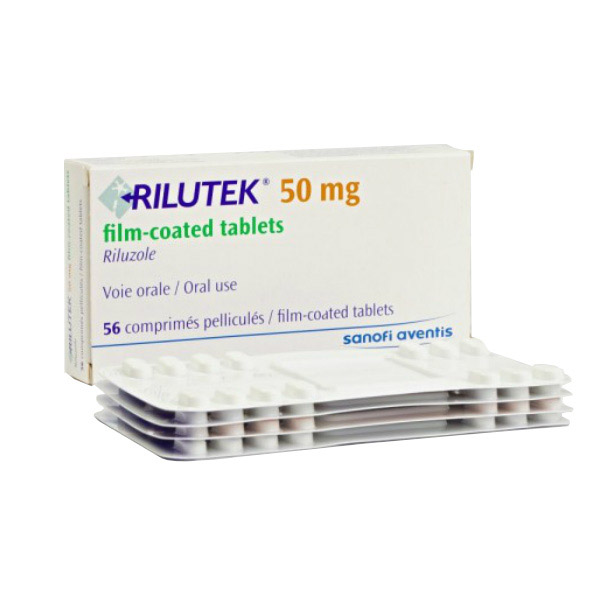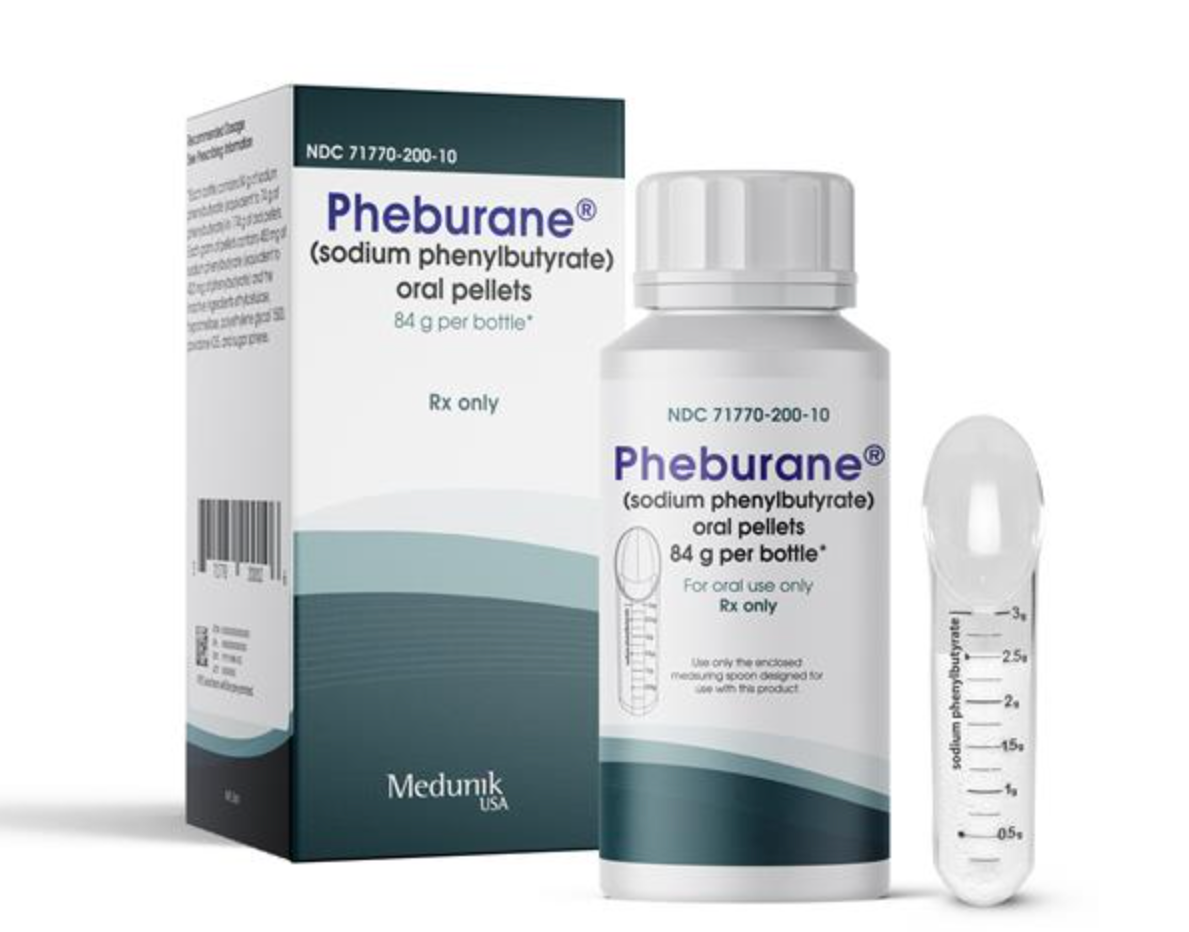Rilutek (riluzole) vs Pheburane (sodium phenylbutyrate)
Rilutek (riluzole) vs Pheburane (sodium phenylbutyrate)
Rilutek (riluzole) is primarily used to slow the progression of amyotrophic lateral sclerosis (ALS), a neurodegenerative disease, by protecting nerve cells from glutamate-induced damage. Pheburane (sodium phenylbutyrate) is used to treat urea cycle disorders, which are genetic conditions that affect the body's ability to remove ammonia from the bloodstream. While both medications aim to manage different serious conditions by influencing metabolic processes, the choice between Rilutek and Pheburane would depend on the specific diagnosis, as they are not interchangeable and are used to treat entirely different diseases.
Difference between Rilutek and Pheburane
| Metric | Rilutek (riluzole) | Pheburane (sodium phenylbutyrate) |
|---|---|---|
| Generic name | Riluzole | Sodium phenylbutyrate |
| Indications | Amyotrophic lateral sclerosis (ALS) | Urea cycle disorders |
| Mechanism of action | Reduces glutamate release, inactivates voltage-dependent sodium channels | Provides an alternate pathway for the excretion of nitrogen in patients deficient in urea cycle enzymes |
| Brand names | Rilutek, Tiglutik | Buphenyl, Pheburane |
| Administrative route | Oral | Oral |
| Side effects | Dizziness, gastrointestinal disturbances, elevated liver enzymes | Body odor, headache, nausea, vomiting, amenorrhea, irregular menstruation |
| Contraindications | Liver disease, caution in renal impairment | Hepatic or renal impairment, hyperammonemia |
| Drug class | Glutamate inhibitor | Ammonia scavenger |
| Manufacturer | Sanofi | Horizon Pharma (Buphenyl), Lucane Pharma (Pheburane) |
Efficacy
Rilutek (Riluzole) and Its Efficacy in ALS
Rilutek, known generically as riluzole, is a medication approved by the FDA for the treatment of Amyotrophic Lateral Sclerosis (ALS). ALS is a progressive neurodegenerative disease that affects nerve cells in the brain and spinal cord, leading to loss of muscle control. Riluzole is believed to reduce the damage to motor neurons by decreasing the release of glutamate, which can be toxic to nerve cells in high amounts. Its efficacy has been demonstrated in clinical trials where it has been shown to prolong survival in ALS patients by several months. Additionally, riluzole may delay the onset of ventilator-dependence or tracheostomy in selected patients and can increase the time patients remain in milder stages of the disease.
Assessment of Riluzole's Impact on Disease Progression
While Rilutek has been shown to have a modest effect on prolonging life, its impact on slowing disease progression is less pronounced. Clinical studies have not consistently shown a significant delay in the progression of ALS symptoms such as muscle strength, functional abilities, and lung function. The variability in disease progression among patients and the complexity of ALS make it challenging to measure the true impact of the drug on disease progression. Despite this, riluzole remains one of the few treatments available that has a demonstrated survival benefit for ALS patients.
Pheburane (Sodium Phenylbutyrate) in ALS Treatment
Pheburane, or sodium phenylbutyrate, is a drug that has been used off-label for the treatment of ALS. It is not specifically approved for ALS but has been explored due to its potential neuroprotective properties. The drug acts as a chemical chaperone, which may help in reducing cellular stress and protein aggregation, both of which are thought to contribute to motor neuron damage in ALS. However, the efficacy of sodium phenylbutyrate in the treatment of ALS has not been established in large-scale, randomized clinical trials. Therefore, its use in this context is considered experimental and is typically reserved for use within clinical studies or specialized treatment protocols.
Current Understanding and Future Directions
The current understanding of the efficacy of Rilutek and Pheburane in treating ALS is based on a combination of clinical trial data and off-label use experiences. Riluzole remains a cornerstone of ALS therapy due to its survival benefit, while the potential role of sodium phenylbutyrate in ALS treatment continues to be an area of research interest. As the medical community strives to improve the outcomes for ALS patients, ongoing clinical trials and research into these and other treatments are crucial. The hope is that future studies will provide clearer insights into the optimal use of these medications and lead to the development of more effective therapies for this challenging condition.
Regulatory Agency Approvals
Rilutek
-
European Medical Agency (EMA), European Union

-
Food and Drug Administration (FDA), USA

-
Health Canada

-
Therapeutic Goods Administration (TGA), Australia

-
Medicines & Healthcare products Regulatory Agency (MHRA), United Kingdom

-
Medsafe (NZ)

Pheburane
-
European Medical Agency (EMA), European Union

-
Food and Drug Administration (FDA), USA

Access Rilutek or Pheburane today
If Rilutek or Pheburane are not approved or available in your country (e.g. due to supply issues), you can access them via Everyone.org.
How it works

Make an enquiry
Choose the medicine you want to buy, answer a couple of questions, and upload your prescription to speed things up. We’ll get back to you within 24 hours.


Make an enquiry
Choose the medicine you want to buy, answer a couple of questions, and upload your prescription to speed things up. We’ll get back to you within 24 hours.


Breeze through the paperwork
We'll guide you through the required documents for importing unapproved medicine, ensuring you have all the necessary information.


Get a personalized quote
We’ll prepare a quote for you, including medicine costs and any shipping, administrative, or import fees that may apply.


Receive your medicine
Accept the quote and we’ll handle the rest - sourcing and safely delivering your medicine.

Some text on this page has been automatically generated. Speak to your physician before you start a new treatment or medication.
Let's talk
If you have any questions, call us or send us a message through WhatsApp or email:
Contact us




